
Question and Answers Forum
AllQuestion and Answers: Page 1029

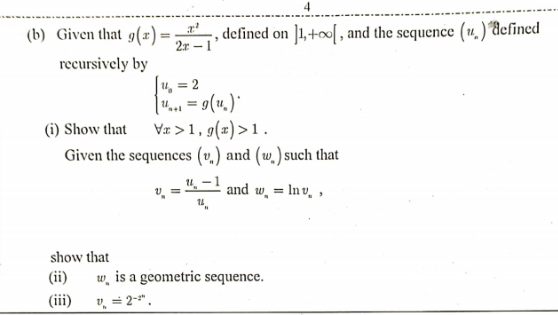

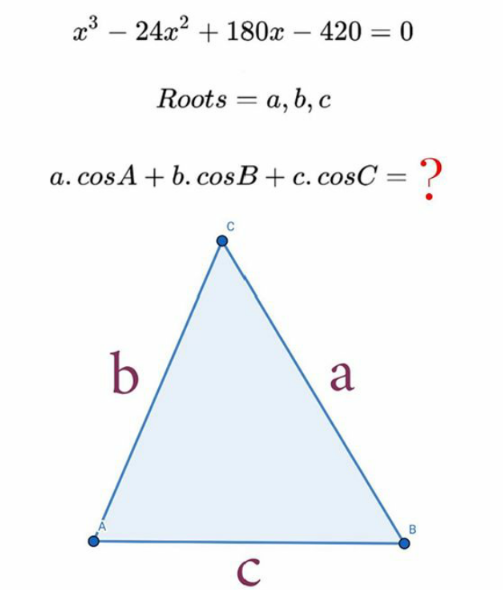

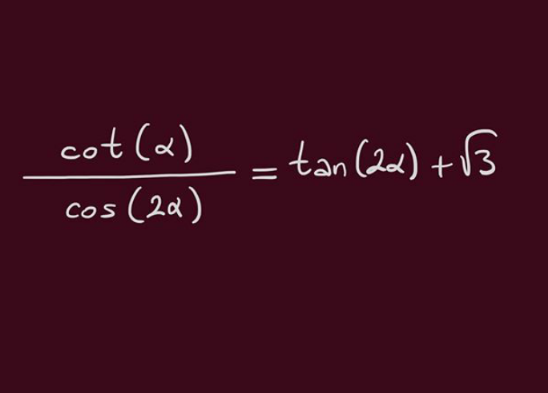

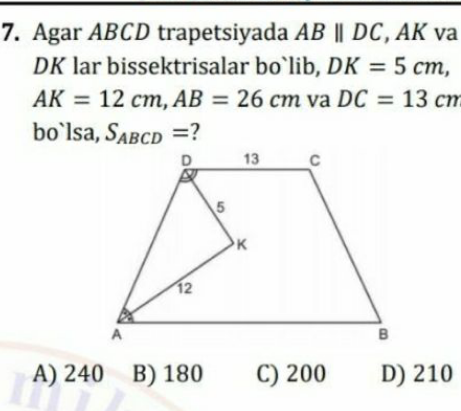
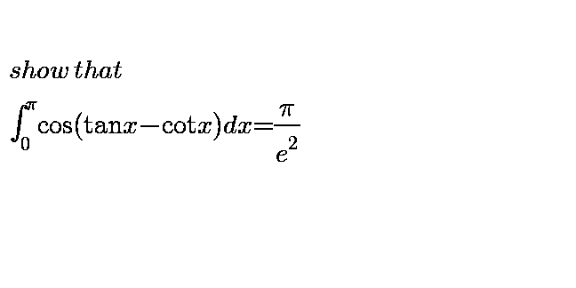
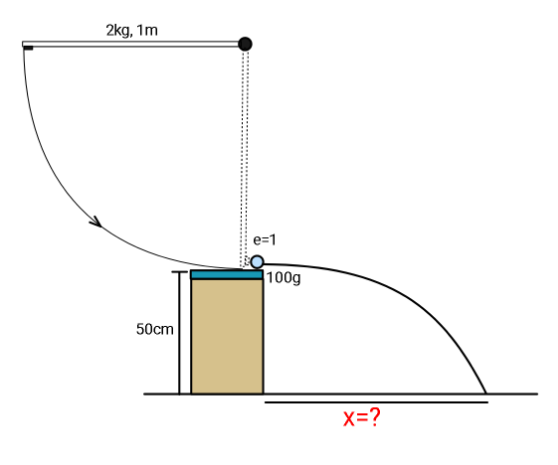



Pg 1024 Pg 1025 Pg 1026 Pg 1027 Pg 1028 Pg 1029 Pg 1030 Pg 1031 Pg 1032 Pg 1033
|
Question and Answers Forum |
AllQuestion and Answers: Page 1029 |

|

|

|

|

|

|
| △((♭e)/(Math))▽ lim_(x→∞) (√(81x^2 −10x+1))−4x+3−(√(25x^2 −10x+1)) =? |
| Given the equation of two circles C_1 : x^2 + y^2 −6x−4y + 9 = 0 andC_2 : x^2 +y^2 −2x−6y + 9 =0 find the equation of the common tangent to both circles. |

|
| find sin3 in surd form |
| Prove that tan142°30′+(√6)+(√3)−(√2) is an integer. |
| ((16))^(1/(x−1)) −5 (4)^(1/(x−1)) +2=0 find x? |
| (1)∫∣((x+3)/(x+1))∣dx (2)∫x∣x−1∣dx (3)∫e^((x−1)/x) dx |
| Define the laplace transformation equation and use the transformation equation transform (dy/dx) and (d^2 y/dx^2 ) hence solve the equation : (d^2 y/dx^2 ) + 5 (dy/dx) + 4 = e^(−x) sin 2x Using the laplace transformation equations derived above. |

|

|

|
| If first n terms of an A.P. is cn^2 , find sum of squares of its first n terms. |

|
| ((Δbe▽)/(math)) ∫ ((arc tan x)/((1+(1/x^2 )))) dx ? |
| 2^(x+5) =(√8^x ) |

|
| ((★be★)/(Math)) ∫ ((cos x dx)/(sin^2 x+4sin x−5)) ? |

|
| ((JS)/(■★★■)) lim_(x→3) ((5−2x+(√(x−2)))/(x−4+(√(x−2)))) ? |
| Find the nth term for the sequence 3. 12. 27. 48. 75... |
Pg 1024 Pg 1025 Pg 1026 Pg 1027 Pg 1028 Pg 1029 Pg 1030 Pg 1031 Pg 1032 Pg 1033 |